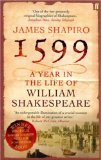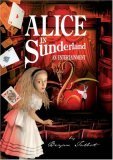The First World War is still providing material for poems for today
The First World War continues to haunt poets. The first contribution to BBC Radio 3’s Poems for Today in their Poetry Season 2009 was broadcast this morning on the Breakfast programme. It was, Sara Mohr-Pietsch told us, recorded by Andrew Motion just before he relinquished the post of Poet Laureate. It’s a personal and not a ceremonial work, in which Motion recalls when he was 17 and the poems of Rupert Brooke were ‘the only ones I had read in their entirety’. Brooke’s collected works had been presented to him at school and the leather-bound volume took pride of place in his parents’ ‘whirligig bookcase’ (this was the word Andrew Motion actually used, as I found out when I caught the poem a second time round over lunch, not ‘hurdy-gurdy’ as I put this morning: must pay more attention). With two friends he visited the island of Skyros to find Brooke’s grave – and the heat on the harsh hillside, he says, meant the ill-equipped English schoolboys almost joined their hero in early graves. Even in 1969 this devotion to Brooke (‘who died,’ the grave records, ‘for the deliverance of Constantinople from the Turks’) must have seemed quaint English nostalgia. Read more about Brooke’s death and see a picture of the grave on Wikipedia and Poet’s Graves.
You should be able to listen again to all forty Poems for Today readings on the BBC site for the next year, though at present there are no recordings available. So make do with Ian McMillan’s more cheerful collaborative poem ‘I pull the curtains wide and feel the morning on my face’, composed with the help of listeners this morning in a new form he’s calling the ‘Pietsch’ in honour of the Breakfast presenter.
Poems of Today, incidentally, was a very popular collection first published in 1915 and much reprinted; I have a leather-bound copy on my shelves dating from 1925 and a school edition from 1942. The preface tells us: ‘This book has been compiled in order that boys and girls, already perhaps familiar with the great classics of the English speech, may also know something of the newer poetry of their own day. Most of the writers are living, and the rest are still vivid memories among us, while one of the youngest, almost as these words are written, has gone singing to lay down his life for his country’s cause.’ That ‘singing’ young poet was, of course, Brooke. There’s more about the collection, and where to find it online, on Literary Connections.
More about the new Poet Laureate, including exclusive revelations, in a later post!


